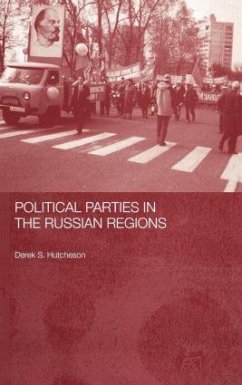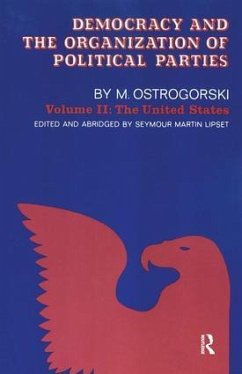
Political Parties and the Internet
Net Gain?
Herausgeber: Gibson, R. K.; Ward, S. J.; Nixon, P. G.
Versandkostenfrei!
Versandfertig in 1-2 Wochen
234,99 €
inkl. MwSt.
Weitere Ausgaben:

PAYBACK Punkte
117 °P sammeln!
Provides an assessment of how political parties are adapting to the rise of new ITCs, and what the consequences of that adaptation will be. Includes case studies of the US, UK, Australia, Korea, Mexico, France, Romania and the Mediterranean region.














